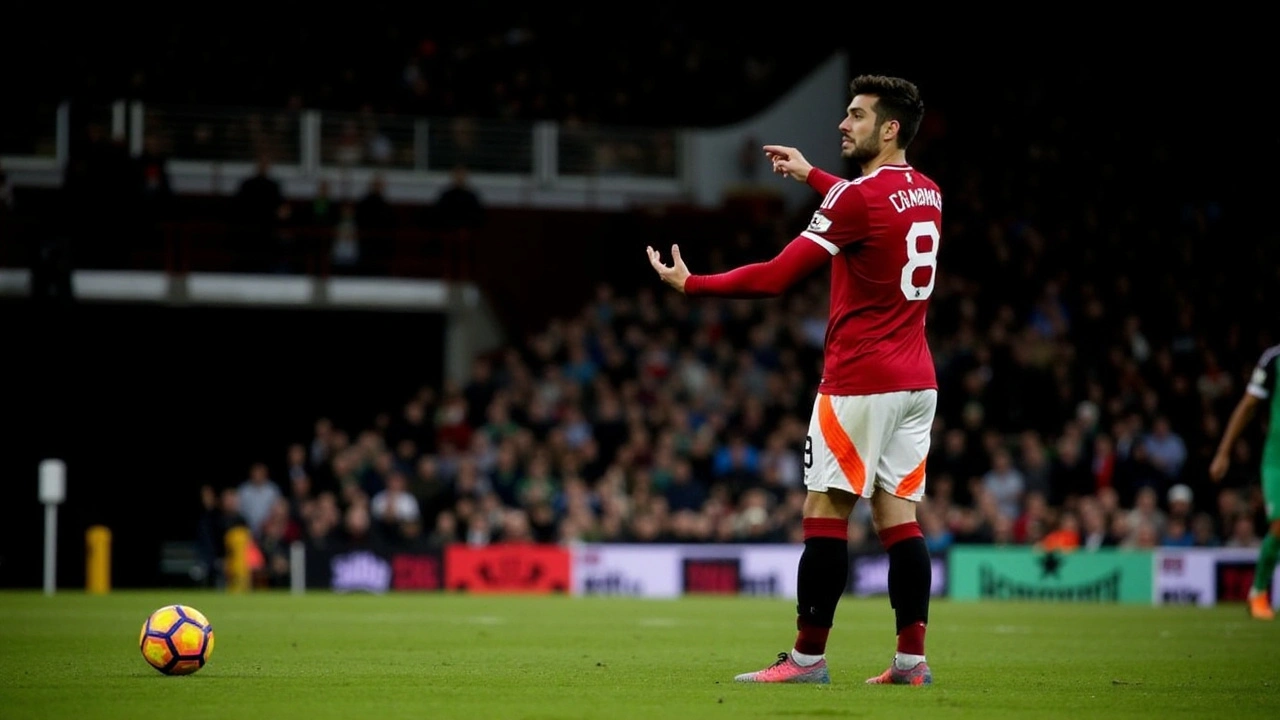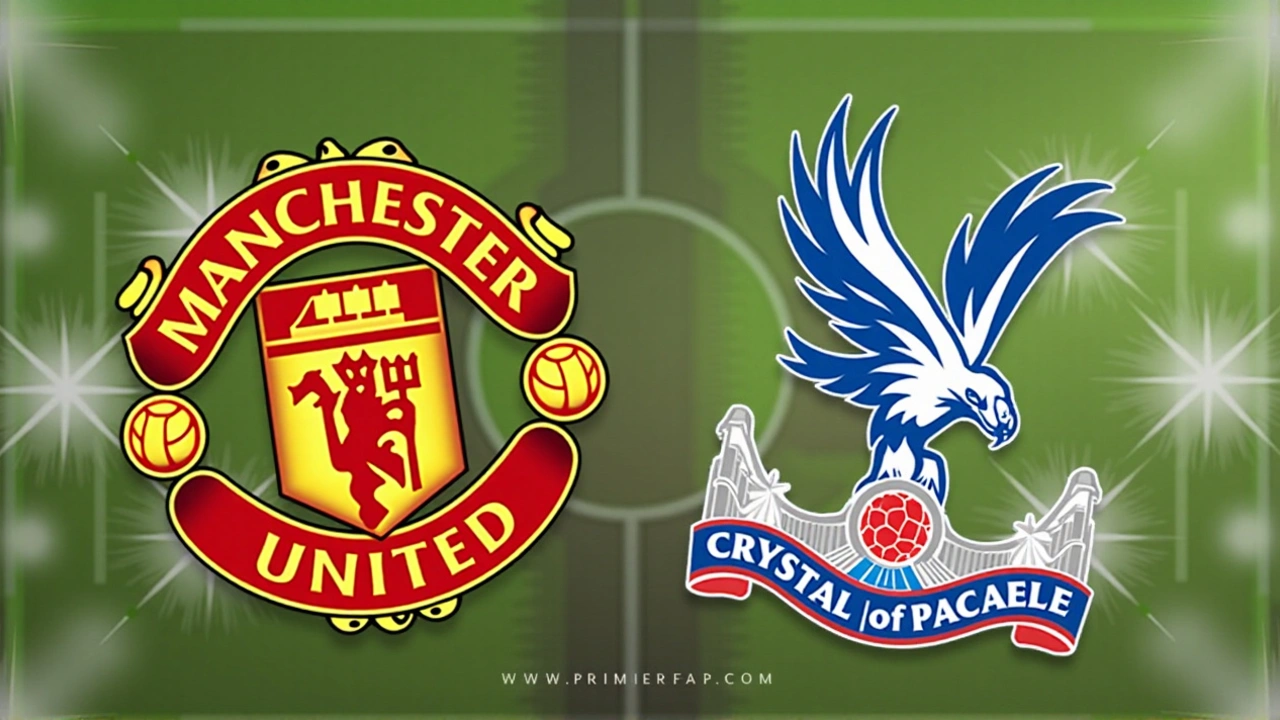Understanding the UK 3pm Football Broadcasting Blackout
Football enthusiasts in the United Kingdom might find themselves somewhat perplexed when certain noteworthy matches are not broadcasted live on television. Manchester United’s bout with Crystal Palace stands out as one such case, where fans face the frustration of not being able to view the action directly on TV. This stems from the longstanding 3pm football broadcasting blackout, which is a significant part of the country's football-viewing culture. This regulation prohibits televised broadcasts of football matches within the UK when they are scheduled between 2:45 pm and 5:15 pm on a Saturday. The primary goal is to encourage attendance at lower-league games by eliminating the option to watch Premier League giants from the comfort of home.
Back in the 1960s, when the rule was conceptualized, the idea was to safeguard smaller local clubs whose attendance might drop if top-tier games were easily accessible on television. The concern was that fans would prefer to watch the most celebrated clubs instead of heading to a local match, directly affecting the smaller clubs' revenue. As such, those in charge thought it prudent to protect live attendance figures across all leagues, ensuring smaller clubs could maintain a sustainable financial status.
Ruben Amorim and Manchester United’s Recent Form
This particular fixture was initially slated for a typical Saturday slot of 3pm GMT. However, it was postponed as Manchester United, now navigating their pathway under the managerial guidance of Ruben Amorim, had commitments in the Europa League that impacted their domestic schedule. Amorim's influence is arguably noticeable, considering the Red Devils secured three consecutive victories against teams of stature like Rangers, Fulham, and FCSB prior to this Crystal Palace confrontation. His methods are evidently resonating well with the squad, reigniting their ambitions post a somewhat fluctuating phase earlier in the season. Amorim, harnessing a blend of tactical acumen and invigorating motivation, has been lauded for bringing a rejuvenated sense of purpose and cohesion on the pitch.
Meanwhile, Crystal Palace, under their own stewardship, have maintained an impressive streak themselves. Their on-field dynamism and resilience have turned them into formidable competition, thereby setting the stage for a keenly anticipated showdown at Old Trafford. Given both clubs’ form, the clash promised excitement and drama—the very essence of Premier League football.
Options for Fans: Following the Game Online
Even if the game isn’t live on UK screens due to the TV restrictions, enthusiasts aren't entirely left in the dark. Standard Sport's dedicated match blog offered a digital alternative, providing up-to-the-minute coverage and insights as they unfolded. The blog’s real-time updates were crucial for fans eager to stay connected with the action and receive timely notifications of significant events, be it goals, bookings, strategic plays, or managerial decisions.
Analyzing games through such blogs adds another layer of engagement as fans from various backgrounds and locations can contribute through comments, sharing opinions, and predictions—turning an otherwise solo experience into a communal one. On top of that, the anticipation for Match of the Day 2 on BBC One, where free highlights of the game are scheduled to be aired at 10:30 pm on Sunday, serves as a beacon for those interested in reliving the match’s most thrilling moments, providing plenty of backstory discussions and analysis from seasoned pundits.

The Broader Implications of the 3pm Blackout
While the blackout rule has its core intentions rooting decades back, discussions in modern times sometimes stir about its current relevance. The digital era has brought forward new questions regarding accessibility and consumption of sports content, especially with streaming services becoming significantly embedded in everyday life. Proponents of maintaining the blackout argue it still plays a vital role in sustaining lower-league clubs, supporting live attendance culture, and balancing the scales in a game increasingly skewed towards lucrative television deals.
On the flip side, some argue that the contemporary football fan often prefers the flexibility and comfort offered by live broadcasts, viewing it as an opportunity for fans from various socio-economic backgrounds who might not otherwise afford frequent match attendances. The compromise is often seen in the form of extended highlight packages and increased digital engagement, elements that bridge the gap until any potential reforms.
Why the Tradition Persists
For many, the 3pm blackout is more than just a rule—it's a tradition. It embodies the essence of the football culture in the UK, reminding newer generations of the sport’s local roots. As football continues to evolve, with clubs drawing international attention and players becoming global figures, this blackout persists as a link to the past. This historical facet remains cherished by purists who value the matchday experience as something exceptional and inherent to the locale. It enforces the priority of being present at the stadium, soaking in the energy, and seeing football through one’s own eyes rather than lenses.
Thus, as Manchester United and Crystal Palace meet on the pitch, the inability to witness it live on television in the UK harks back to fostering a presence in the stadium, keeping in mind the origins of the club-supporter connection. It challenges supporters to engage with their local clubs and maintain the spirit of live sport as part of the culture.


Author
Ra'eesa Moosa
I am a journalist with a keen interest in covering the intricate details of daily events across Africa. My work focuses on delivering accurate and insightful news reports. Each day, I strive to bring light to the stories that shape our continent's narrative. My passion for digging deeper into issues helps in crafting stories that not only inform but also provoke thought.